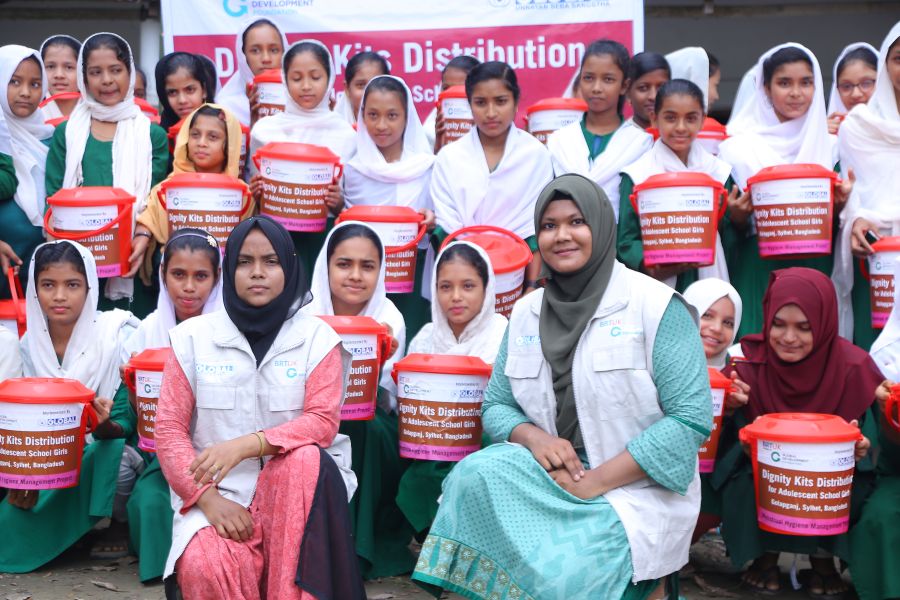
Case Study-BRTUK-Protection of Puberty School Girls - Samira Begum
Samira Begum (13) is a student of 9th grade at Mofozzil Ali High School who lives with her parents. Her father is a day labor and mother a housewife. Samira is the 2nd child of her parents among one elder brother and one younger sister. She loves playing Badminton and also helps her mother in household chores and looks after her younger sister.
While talking about her first experience of period, Samira viewed it as a scared moment. She said, when I was only 9 and I could still remember the day when my mother was not at home. Suddenly I found a lot of blood coming out and I couldn’t stand. It was hard! My father was just looking at me and said “my daughter is growing.” I was dying of shame”.
In rural areas girls are not prepared and aware about menstruation so they face many difficulties and challenges at home as well as in school or workplace. Women have developed their own perceptions and personal strategies to handle their period later they teach these to their daughters. Samira also developed some misconceptions regarding period. Her mother taught her that menstruating girls are not allowed to bath and wash hair, as it is believed to impede blood flow. She was also prohibited from cooking and from taking certain foods like pickle. Participating in awareness session on MH helped Samira to correct her wrong practices. Now she is aware about the importance of keeping herself neat and clean during period. She also came to know that she can play Badminton and perform other regular activities even if she is on her period. Now she uses sanitary pad instead of old cloth and she found it more comfortable. She said,
“The new cloth (sanitary pad) is easy to wash and dry, stains are not visible as it is pink in color. I used to have skin abrasions on my inner thighs with the old cloths, but not anymore with the new one”.
Samira is an energetic girl who has a positive outlook towards life. She has decided to disseminate the information with her younger sister and peer groups so that all the girls of growing age in her community have a good knowledge and practices about menstruation.


